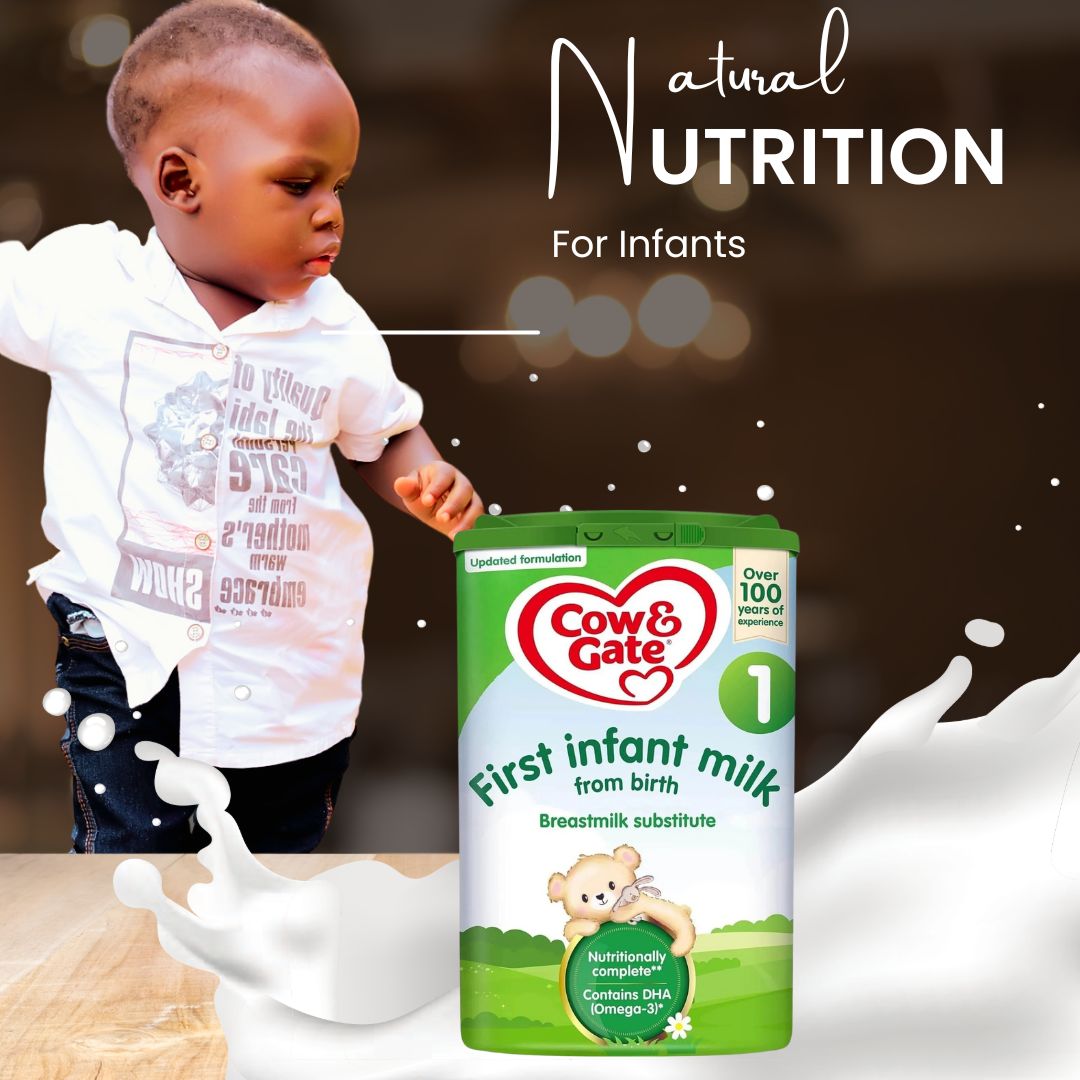
An overview of Formula Milk For Newborns

Key Points on Formula Milk For Newborns
-
First Infant Formula:Standard Formula Milk For Newborns are designed to mimic the composition of human breast milk as closely as possible. They contain a balance of macronutrients (proteins, carbohydrates, and fats), vitamins, minerals, and other essential nutrients. Standard Formula Milk For Newborns are suitable for healthy, full-term infants who do not have specific dietary needs or health conditions.
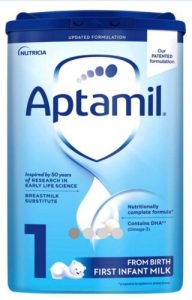
Formula milk For Newborns -
Nutrient-Rich:Formula Milk For Newborns regulations outline specific compositional requirements to ensure that products provide essential nutrients in appropriate quantities and ratios for infant growth and development. These requirements typically include guidelines for protein, carbohydrate, fat, vitamins, minerals, and other nutrients. Regulatory authorities may set minimum and maximum levels for nutrients, as well as specify permissible ingredients and additives. Compliance with compositional requirements is critical to meeting the nutritional needs of infants and supporting optimal health outcomes.
-
Safety:Safety is paramount when it comes to Formula Milk For Newborns, given the vulnerability of infants. Regulatory authorities establish rigorous safety standards to mitigate the risk of contamination, adulteration, and microbial hazards. These standards encompass Good Manufacturing Practices (GMP), hygiene requirements, and microbiological criteria. Manufacturers must adhere to strict safety protocols throughout the production, packaging, and distribution processes to ensure the safety of Formula Milk For Newborns.

Formula milk For Newborns -
Preparation:Always follow the manufacturer’s instructions carefully when preparing formula. This includes using boiled water that has been cooled down and ensuring proper hygiene. Procedures are specific for each brand.
-
Types of Formula Milk For Newborns
- Cow’s Milk-Based: This is the most common type, often containing whey protein, which may be easier to digest.
Soy-Based Formula:
Soy-based formulas are made from soy protein instead of cow’s milk protein. They are suitable for infants who are allergic to cow’s milk protein or who have lactose intolerance. Soy-based formulas may also be chosen by families following a vegetarian or vegan diet.
Specialized Formulas:
Specialized formulas are designed to meet the nutritional needs of infants with specific health conditions or dietary requirements. Examples include:
Hydrolyzed Formula:
Hydrolyzed formulas contain proteins that have been broken down (hydrolyzed) into smaller fragments, making them easier to digest. They are recommended for infants with allergies to cow’s milk protein or with gastrointestinal issues, such as colic or reflux. Hydrolyzed formulas may be partially hydrolyzed (partially broken down) or extensively hydrolyzed (more thoroughly broken down).
Hypoallergenic formulas for infants with severe cow’s milk protein allergies.
Preterm formulas for premature infants who have unique nutritional needs.
Anti-reflux Formulas with added rice starch or thickening agents for infants with reflux or spit-up issues.
Formulas enriched with additional nutrients, such as omega-3 fatty acids or prebiotics, for certain health conditions or developmental needs.
Organic Formula:
Organic infant formulas are made from ingredients that are grown and processed without synthetic pesticides, fertilizers, or genetically modified organisms (GMOs). They are suitable for families who prefer organic products or who want to minimize exposure to potentially harmful chemicals.
- Goat Milk-Based Formulas: These are also available as a potential alternative, particularly for some infants.
- Cow’s Milk-Based: This is the most common type, often containing whey protein, which may be easier to digest.
-
When to Use:Formula is often used when breastfeeding is not possible, or as a supplement to breastfeeding.
Understanding Formula Milk For Newborns
Formula Milk For Newborns is a specially designed product that mimics the nutritional components of human breast milk to the best extent possible. Developed to provide a complete diet for infants, formula milk is fortified with various vitamins and minerals critical for a baby’s growth and development.
There are several types of formula available, each of which serves different needs:
-
-
Standard Infant Formula: Designed for healthy infants from birth to 6 months.
-
-
-
Specialized Formula: Targeted for babies with specific health needs, such as lactose intolerance or allergies.
-
-
-
Organic and Non-GMO Formula: Made from ingredients that are grown without chemical fertilizers and genetically modified organisms.
-

Formula milk For Newborns
-
Choosing the Right Formula
Choosing the right formula can feel daunting, considering the variety available on the market. Here are some key points to keep in mind:
-
- Consult Your Pediatrician: It’s vital to have an open discussion with your doctor; they can guide you based on your baby’s specific health requirements.
-
- Read Labels Carefully: Check for essential nutrients like DHA, ARA, iron, and vitamins C and D, which support your baby’s development.
-
- Consider Your Baby’s Sensitivity: If your baby exhibits signs of discomfort after feeding, you might consider trying a different formula or specialized formulas.
Preparing Formula Milk

Preparation is a crucial aspect of using formula milk, as improper preparation can lead to nutritional deficiencies or health risks for your baby. Here’s how to properly prepare formula:
-
- Wash your hands thoroughly before preparing the formula.
-
- Use clean, sterilized bottles and nipples to avoid contamination.
-
- Follow the instructions on the formula can carefully, measuring the right amount of powder and water.
-
- Mix the formula by gently swirling or shaking the bottle to ensure it is well blended.
-
- Test the formula’s temperature by placing a few drops on your wrist; it should feel warm but not hot.
Feeding Techniques
The way you feed your baby can impact their comfort and overall experience. Here are some feeding techniques to consider:
-
- Hold Your Baby Close: Cradle your baby in your arms to create a sense of security and bonding.
-
- Keep the Bottle at an Angle: This helps to prevent air from building up in the bottle, reducing the risk of gas.
-
- Let Your Baby Lead: Allow your baby to latch onto the bottle at their own pace and take breaks as needed.
Common Challenges with Formula Feeding
Even though formula feeding can be simpler in some ways, there are challenges that new parents might face.
-
- Digestive Issues: Some babies might experience constipation or gas when transitioning to formula.
-
- Rejection of Formula: Babies might refuse formula if they are used to breastfeeding, requiring patience and creativity in introducing formula.
In such cases, seeking guidance from your pediatrician is essential to resolve issues effectively.
Maintaining a Feeding Schedule
Establishing a feeding schedule is crucial for both parents and babies. Most newborns will feed every 2-3 hours, and this frequency will gradually decrease as they grow older. Here are a few tips for maintaining a feeding schedule:
-
- Pay attention to your baby’s hunger cues, which can include fussiness or sucking on their hands.
-
- Keep a log of feedings to help track your baby’s intake and adjust the schedule as necessary.
-
- Be flexible—some days your baby will be hungrier than others, and that’s normal.
Conclusion
Formula milk can be a tremendous resource for feeding your baby and ensuring they receive the nutritional support they need to thrive. Although navigating the options and adjustments required by formula feeding may seem daunting, arming yourself with knowledge is essential. By considering your baby’s unique needs and consulting with healthcare professionals, you can make the most informed decisions that best support your family’s journey into parenthood.
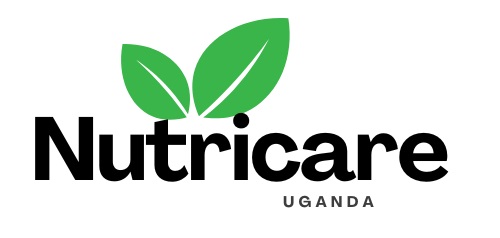
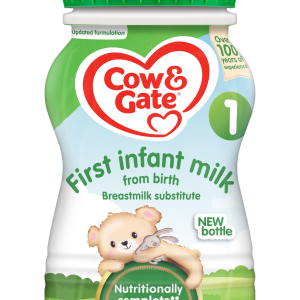 Cow and Gate 1 Ready To Use
Cow and Gate 1 Ready To Use 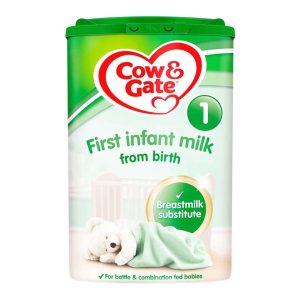 Cow and Gate 1 800g
Cow and Gate 1 800g 